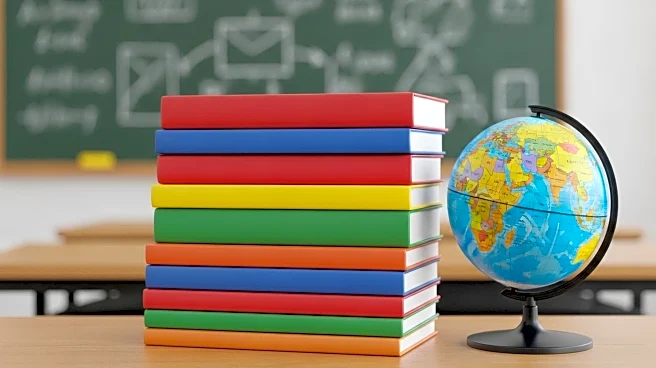What is the story about?
What's Happening?
The Israeli education system is experiencing significant disruptions as hundreds of teachers and principals are called to reserve duty amidst ongoing military operations. Rabbi Nitzan Berger, head of the Amit Kfar Ganim Yeshiva High School, emphasizes the importance of educators serving in the military as a powerful lesson for students. Despite the challenges, the Education Ministry is committed to ensuring continuity of learning, relying on substitutes and remaining staff to fill the gaps. The mobilization of educators is seen as a national mission, setting a role model for students and highlighting the value of service and leadership.
Why It's Important?
The call-up of educators to reserve duty underscores the intersection of national security and education in Israel. This situation highlights the resilience and adaptability required within the education system to maintain operations during times of conflict. It also reflects the broader societal values of service and duty, as educators balance their roles in the classroom with military responsibilities. The impact on students is profound, as they witness firsthand the commitment of their teachers to national defense, potentially influencing their own future choices regarding military service and civic responsibility.
What's Next?
As the reserve draft expands, the education system will continue to seek solutions to manage the absence of key staff. This may involve increased reliance on substitute teachers, retired educators, and innovative teaching methods, such as remote instruction from the field. The situation may prompt discussions on the long-term sustainability of such practices and the potential need for policy adjustments to support educators during military mobilizations. Stakeholders, including educational leaders and government officials, will likely explore strategies to balance educational continuity with national security demands.
Beyond the Headlines
The mobilization of educators for reserve duty raises ethical and cultural questions about the role of education in times of conflict. It challenges traditional notions of classroom-based learning, suggesting that education can extend beyond academic subjects to include lessons in civic duty and national service. This development may influence future educational policies and curricula, integrating themes of leadership and service more prominently. Additionally, it highlights the unique challenges faced by countries with mandatory military service, where educators and other professionals must navigate dual roles in society.















